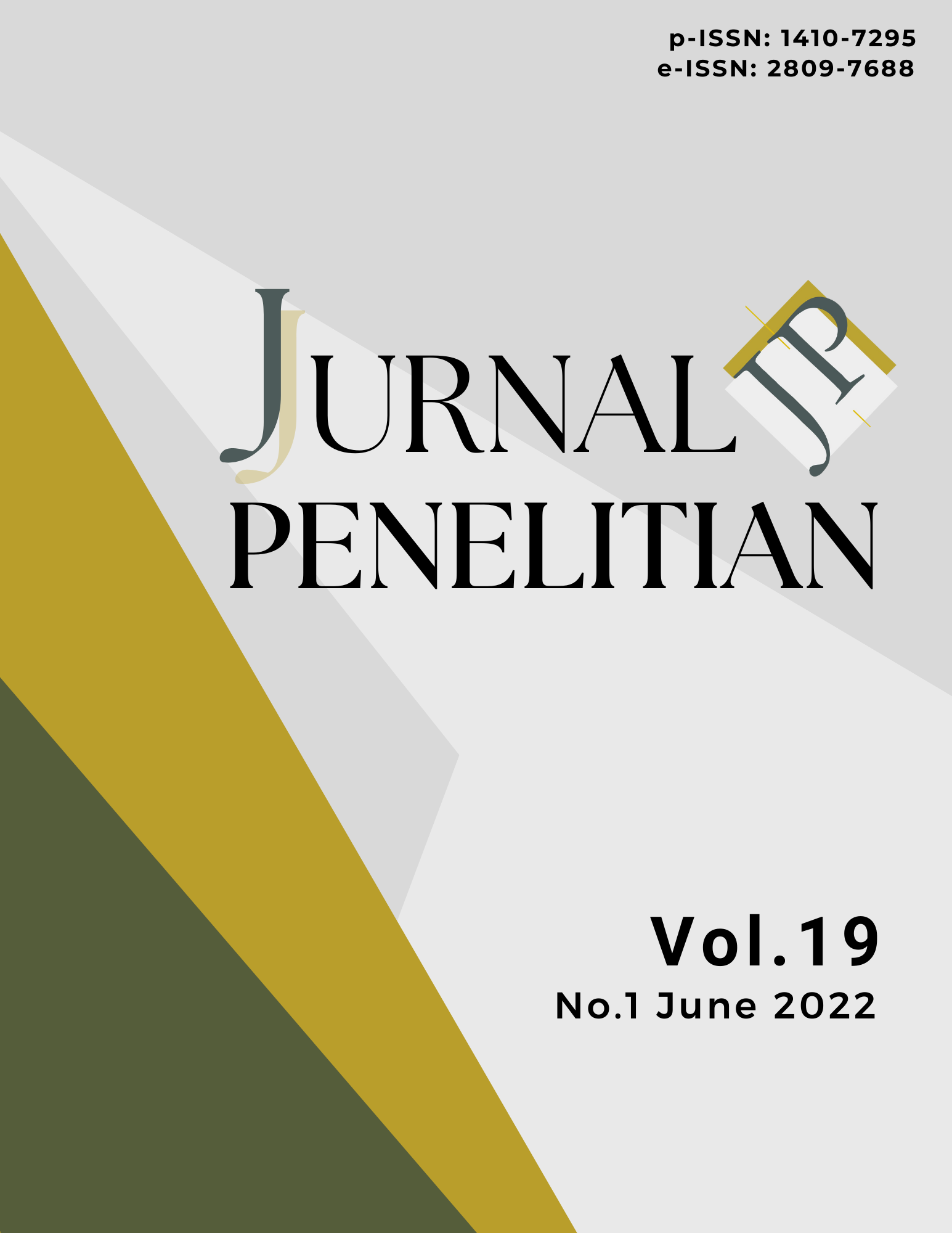Do the saving interest in Islamic banks affected by financial literacy and religiosity?
DOI:
https://doi.org/10.26905/jp.v19i1.8286Keywords:
Financial Literacy, Religiosity, Interest in savingAbstract
This study examines the effect of financial literacy and religiosity on interest in saving at Islamic banks in the people of Tlogomulyo District, Temanggung Regency. This study uses a quantitative approach with the data used using primary data using an online questionnaire via a google form. The questionnaire was taken using the purposive sampling technique with the number of samples used in this study being 76 respondents. This research was conducted using the multiple regression analysis methods and tested using SPSS. The test results prove that religiosity has a positive effect on interest in saving in Islamic banks in the people of Tlogomulyo District, Temanggung Regency. While financial literacy does not affect the interest in saving in Islamic banks in the people of Tlogomulyo District, Temanggung Regency.
Downloads
References
Akmal, H., & Saputra, Y. E. (2016). Analisis tingkat literasi keuangan. JEBI (Jurnal Ekonomi Dan Bisnis Islam), 1(2), 235-244.
Albaity, M., & Rahman, M. (2019). The intention to use Islamic banking: an exploratory study to measure Islamic financial literacy. International Journal of Emerging Markets, 14(5), 988–1012. https://doi.org/10.1108/IJOEM-05-2018-0218.
Chen, H., & Volpe, R. P. (1998). An analysis of personal financial literacy among college students. Financial services review, 7(2), 107-128.
Handida, R. D., & Sholeh, M. (2018). Pengaruh tingkat pengetahuan, kualitas layanan, dan tingkat literasi keuangan syariah terhadap pengambilan keputusan masyarakat muslim menggunakan produk perbankan syariah di Daerah Istimewa Yogyakarta. Jurnal Economia, 14(1), 84-90.
Iannaccone, L. R. (1998). Introduction to the economics of religion. Journal of Economic Literature, 36(3), 1465-1495.
Jamaludin, N. (2013). Religion and individual investment choice decision: The case of Malaysia. International Journal of Social Science, 4(1), 104–113.
Johnson, B. R., Jang, S. J., Larson, D. B., & De Li, S. (2001). Does adolescent religious commitment matter? A reexamination of the effects of religiosity on delinquency. Journal of Research in Crime and Delinquency, 38(1), 22-44. https://doi.org/10.1177/0022427801038001002.
Komisioner, D., & Jasa, O. (2015). Manajemen Risiko Bank Perkreditan Rakyat. Otoritas Jasa Keuangan Republik Indonesia.
Masruroh, A. (2015). Analisis pengaruh tingkat religiusitas dan disposible income terhadap minat menabung mahasiswa di perbankan syariah (Studi Kasus Mahasiswa STAIN Salatiga). Doctoral Dissertation. IAIN Salatiga.
Nurrohmah, R. F., & Purbayati, R. (2020). Pengaruh tingkat literasi keuangan syariah dan kepercayaan masyarakat terhadap minat menabung di bank syariah. Jurnal Maps (Manajemen Perbankan Syariah), 3(2), 140-153.
Setyawan, Y. N. (2014). Analisa pengaruh kepercayaan, jaminan rasa aman, dan aksesbilitas terhadap minat menabung nasabah Bank Danamon di Surabaya. Jurnal Strategi Pemasaran, 2(1).
Otoritas Jasa Keuangan. (2019). Statistik Perbankan Syariah tahun 2019. Otoritas Jasa Keuangan, 53(9), 1689–1699.
Santoso, E. W. A. (2007). Faktor relegiusitas dalam perbankan syari’ah. Value Added: Majalah Ekonomi dan Bisnis, 4(1).
Sodiq, A. (2018). Prophetic Character Building. Prenada Media Group.
Souiden, N., & Rani, M. (2015). Consumer attitudes and purchase intentions toward Islamic banks: The influence of religiosity. International Journal of Bank Marketing, 33(2), 143–161. https://doi.org/10.1108/IJBM-10-2013-0115
Suci, A., & Hardi, H. (2020). Literacy experiment of Islamic financing to non-Muslim small and micro business. Journal of Islamic Marketing, 11(1), 179–191. https://doi.org/10.1108/JIMA-01-2019-0003
Triani, A., & Mulyadi, H. (2019). Peningkatan pengalaman keuangan remaja untuk literasi keuangan syariah yang lebih baik. I-Finance: A Research Journal on Islamic Finance, 5(1), 9-22.
Tripuspitorini, F. A. (2020). Pengaruh religiusitas terhadap minat mahasiswa Politeknik Negeri Bandung untuk menabung di bank syariah. Jurnal Masharif al-Syariah: Jurnal Ekonomi dan Perbankan Syariah, 4(2).
Umboh, J. E., & Atahau, A. D. R. (2019). Investment interest and consumptive behaviour of student investors: between rationality and irrationality. Jurnal Dinamika Manajemen, 10(1), 14–31. https://doi.org/10.15294/jdm.v10i1.16837
Usman, H., Tjiptoherijanto, P., Balqiah, T. E., & Agung, I. G. N. (2017). The role of religious norms, trust, importance of attributes and information sources in the relationship between religiosity and selection of the Islamic bank. Journal of Islamic Marketing, 8(2), 158–186. https://doi.org/10.1108/JIMA-01-2015-0004
Utami, W., Sangen, M., & Rachman, M. Y. (2015). Analisis pengaruh religiusitas, kelompok referensi dan motivasi terhadap keputusan menabung di bank syariah (Studi pada nasabah bank Syariah di kota Banjarmasin). JWM (Jurnal Wawasan Manajemen), 3(1), 79-90.
Wijaya, I. F., Hakim, A. R., Saputro, N., & Mulyadi, M. (2020). Religiosity level and saving decisions in Baitul Maal wat Tamwil: the case of Indonesia. Journal of Islamic Marketing, 11(6), 1465–1483. https://doi.org/10.1108/JIMA-09-2018-0160.
Zainudin, R., Mahdzan, N. S., Che Hashim, R., & Sulaiman, N. A. (2019). Islamic religiosity and Islamic financial asset holdings (IFAH). Journal of Islamic Accounting and Business Research, 10(4), 591–606. https://doi.org/10.1108/JIABR-04-2016-0052
Downloads
Published
How to Cite
Issue
Section
License
Authors who publish in this journal agree to the following terms:
- Copyright of the published articles will be transferred to the journal as the publisher of the manuscripts. Therefore, the author confirms that the journal has managed the copyright.
- Publisher of Abdimas: Jurnal Pengabdian Masyarakat Universitas Merdeka Malang is University of Merdeka Malang.
- The copyright follows the Creative Commons Attribution-ShareAlike License (CC BY SA): This license allows to share, copy, and redistribute the material in any medium or format, adapt, remix, transform, and build upon the material, for any purpose, even commercially.


